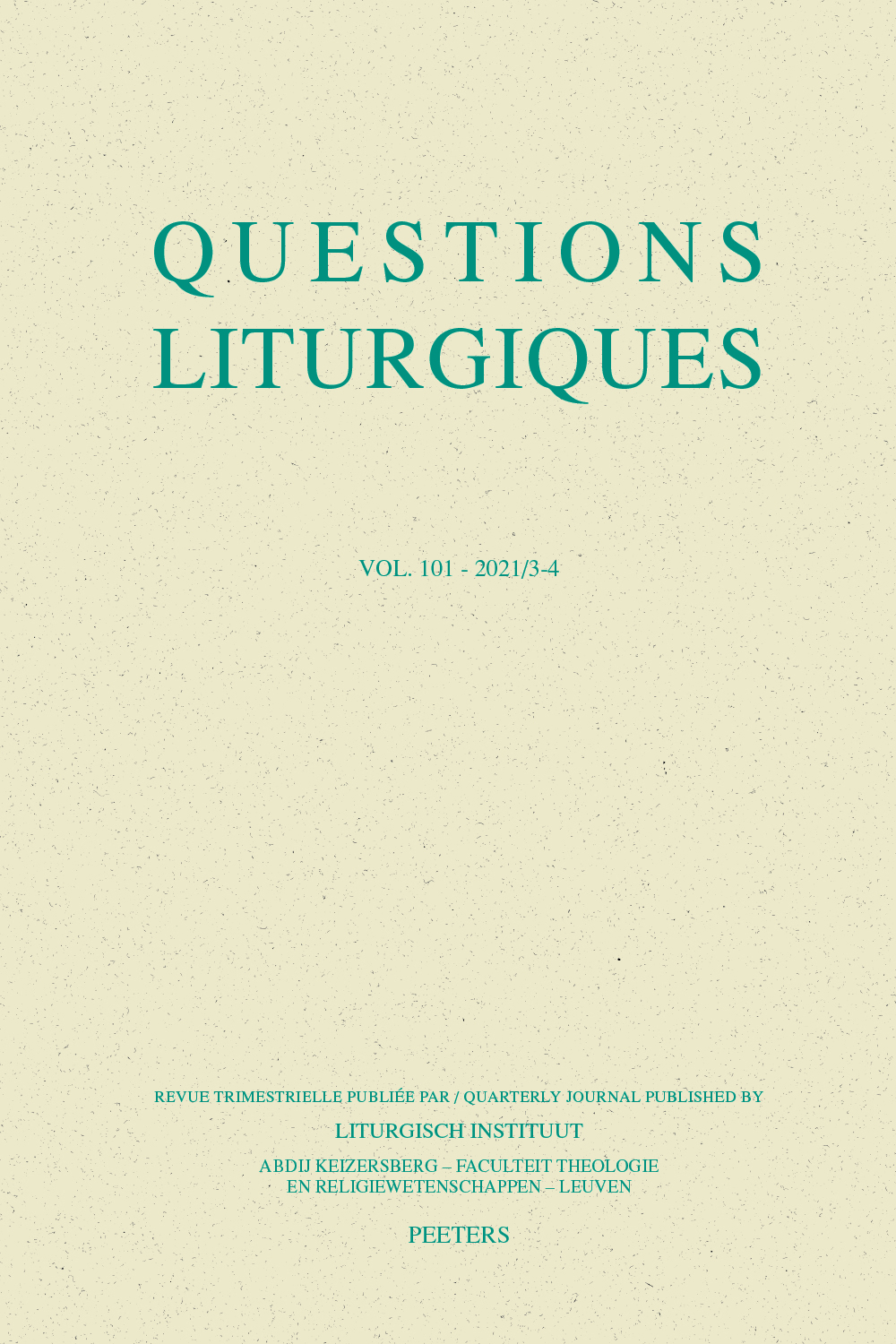 previous article in this issue previous article in this issue | next article in this issue  |

Preview first page |
Document Details : Title: The Active Participation of the Faithful in the Eucharist Subtitle: Reflecting on the Implementations of the Teaching of the Second Vatican Council Author(s): NNEJI, Stella Journal: Questions Liturgiques/Studies in Liturgy Volume: 90 Issue: 4 Date: 2009 Pages: 214-236 DOI: 10.2143/QL.90.4.2045790 Abstract : One of the significant points of the Second Vatican Council is its emphasis on the status of the lay faithful in the Church, which includes active participation in the life of faith. The Council spoke of the active participation of all the faithful in liturgical celebrations on the basis of the common priesthood of the faithful, which is conferred during baptism and through which every believer shares in the priestly, kingly, and prophetic offices of Christ. In this article therefore, we shall develop an ecclesiological critical reflection on the teaching of the Second Vatican Council with regard to active participation. We shall defend the relevance of the active participation of the faithful as a contribution to the life of the church. We shall reveal it as an ancient practice of the Church. Focusing especially on the Church as ‘people of God,’ we shall show how the idea of participation is not merely a passive action but an active one. Based on the ecclesiological reflection on the Church as people of God and its relevance for active participation, we shall show that Vatican II’s vision on active participation is relevant to building up of the Body of Christ (Church). This vision integrates a critical thinking especially with regard to those places where the implementation of Vatican II teachings seems difficult. Un des points significatifs de Vatican II est son insistance sur le statut des fidèles laïcs qui inclut une participation active dans la vie de foi. Le concile traite d’une participation active des fidèles dans les célébrations liturgiques sur la base d’un sacerdoce commun des fidèles qui est conféré par le baptême et par lequel tout croyant participe aux ministères sacerdotaux, royaux et prophétiques du Christ. À cet effet cet article développe une réflexion ecclésiologique critique sur l’enseignement de Vatican II concernant la participation active. Il présente l’application de la participation active des fidèles comme une contribution à la vie ecclésiale. L’a. révèle celle-ci comme une pratique antique de l’Église. Se fixant particulièrement sur l’Église comme ‘peuple de Dieu’, il établit combien l’idée de participation n’est pas tant passive mais surtout active. Cette réflexion ecclésiologique de l’Église comme ‘peuple de Dieu’ et son importance pour une participation active font comprendre que la vision de Vatican II sur la participation active est capitale pour le développement du Corps du Christ (l’Église). Cette vision comporte une réflexion critique, plus particulièrement dans les domaines où la fixation des enseignements de Vatican paraît difficile. |
|


